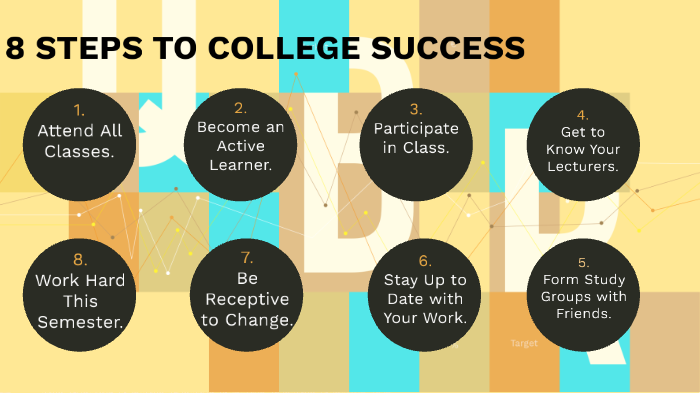
Your first year of college can be both exciting and overwhelming. You are entering a new phase of your life, and with it comes new experiences, new people, and new challenges. While it can be easy to get caught up in the excitement, it is important to stay focused and prioritize your academic success. Here are some tips on how to succeed in your first year of college.
- Attend orientation and get involved
Orientation is designed to help you get acclimated to college life, and it’s an excellent opportunity to meet new people and get involved in campus activities. Make sure to attend all the events and meetings and take advantage of the resources available to you. Joining clubs or organizations that interest you can help you build a sense of community and make new friends. This will help you feel more connected to the campus and can improve your overall college experience.
- Manage your time effectively
College is often busier than high school, and it is easy to get overwhelmed if you don’t manage your time effectively. Create a schedule or planner to stay on top of your assignments, classes, and other commitments. Make sure to give yourself plenty of time to study and complete your coursework. Don’t procrastinate, as this can lead to stress and lower grades. By managing your time effectively, you will be able to balance your academic and social life.
- Attend classes and take notes
Attending classes is crucial to your success in college. Make sure to attend all your classes and take notes to help you retain the material. If you miss a class, try to catch up as soon as possible. Don’t rely on your classmates to give you notes, as they may not be as thorough as you need. Remember, you are paying for your education, so make the most of it by attending classes and taking good notes.
- Build relationships with your professors
Your professors can be a great resource for academic help and guidance. Take the time to get to know your professors, ask questions, and attend office hours if you need help. Building relationships with your professors can help you succeed in their classes, as well as provide you with valuable advice and mentorship. Your professors can also serve as references for future job opportunities or graduate school applications.
- Utilize campus resources
College campuses offer a wealth of resources to help you succeed. Take advantage of resources like the writing center, tutoring, career services, and mental health services. These resources are often free and can help you improve your grades, job prospects, and overall wellbeing. Don’t be afraid to ask for help if you need it.
- Stay healthy
College can be stressful, and it is important to prioritize your health. Make sure to get enough sleep, eat healthy foods, and exercise regularly. Staying healthy can help you manage stress and improve your overall mood and wellbeing. You may also want to consider taking advantage of resources like counseling or mindfulness classes to help you manage stress and improve your mental health.
- Be open-minded and curious
College is a time for exploration and growth. Don’t be afraid to try new things, take classes that interest you, and engage in discussions with people who have different perspectives. Being open-minded and curious can help you expand your knowledge, challenge your beliefs, and develop new interests. This can help you succeed in college and beyond.
In summary, succeeding in your first year of college requires a combination of hard work, dedication, and balance. By attending orientation, managing your time effectively, attending classes and taking notes, building relationships with your professors, utilizing campus resources, staying healthy, and being open-minded and curious, you can set yourself up for success in college and beyond. Good luck!
Advantages to Learning Online for Students
Find online help in writing essays, research papers, term papers, reports, movie reviews, annotated bibliographies, speeches/presentations, projects, presentations, dissertation services, theses, research proposals, essay editing, proofreading, Book reviews, article reviews, formatting, personal statements, admission essays, scholarship essays, application papers, among others.


 WRITE MY ESSAY NOW!
WRITE MY ESSAY NOW!